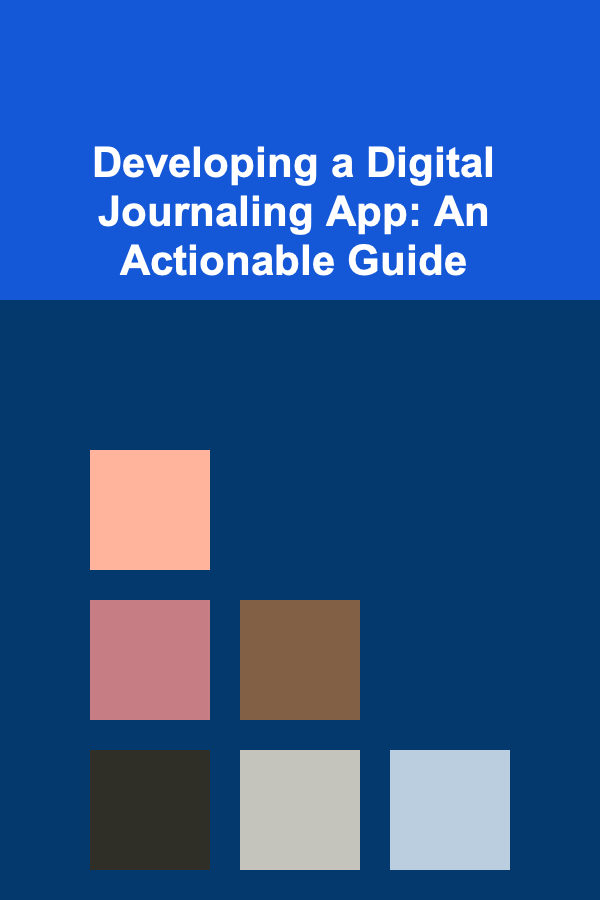
Finding Your Career in the Blockchain Industry: A Comprehensive Guide
ebook include PDF & Audio bundle (Micro Guide)
$12.99$5.99
Limited Time Offer! Order within the next:

The blockchain industry has exploded in recent years, transforming from a niche technology primarily associated with cryptocurrencies to a disruptive force impacting various sectors, including finance, supply chain, healthcare, and governance. This rapid expansion has created a significant demand for skilled professionals, making it an exciting and potentially lucrative field to pursue a career in. However, navigating this nascent and constantly evolving landscape can be challenging. This comprehensive guide aims to provide you with the knowledge and strategies needed to successfully find and thrive in a blockchain career.
Understanding the Blockchain Ecosystem
Before embarking on your career journey, it's crucial to understand the fundamental concepts and key players within the blockchain ecosystem. Blockchain, at its core, is a distributed, immutable ledger that records transactions across multiple computers. This decentralization eliminates the need for a central authority, enhancing security, transparency, and efficiency.
Key Concepts to Grasp:
- Decentralization: The distribution of control and decision-making away from a central authority. Understanding why this is important and how it affects trust is crucial.
- Cryptography: The mathematical foundation underpinning blockchain security. Concepts like hashing, digital signatures, and encryption are essential.
- Consensus Mechanisms: The methods by which blockchain networks agree on the validity of new transactions. Examples include Proof-of-Work (PoW), Proof-of-Stake (PoS), and Delegated Proof-of-Stake (DPoS). Knowing their strengths and weaknesses is vital for understanding the different blockchain architectures.
- Smart Contracts: Self-executing contracts written in code and stored on the blockchain. They automate agreements and enable complex decentralized applications (dApps).
- Tokens: Digital assets representing ownership or utility within a blockchain network. They can be fungible (like cryptocurrencies) or non-fungible (NFTs).
- Decentralized Applications (dApps): Applications that run on a blockchain network, offering greater transparency and user control compared to traditional applications.
Major Blockchain Platforms:
- Bitcoin: The first and most well-known cryptocurrency, built on a proof-of-work blockchain. Understanding its origins and limitations is fundamental.
- Ethereum: A platform that enables the creation of smart contracts and dApps, using a proof-of-stake consensus mechanism (post-Merge). Ethereum is the dominant platform for DeFi and NFTs.
- Binance Smart Chain (BSC): A blockchain network designed to complement Binance, a leading cryptocurrency exchange. It offers faster transaction speeds and lower fees compared to Ethereum.
- Solana: A high-performance blockchain known for its speed and scalability, often used for DeFi and NFTs.
- Cardano: A blockchain platform emphasizing security and sustainability, utilizing a proof-of-stake consensus mechanism.
- Polkadot: A heterogeneous multi-chain architecture allowing different blockchains to interoperate.
- Hyperledger Fabric: An open-source, permissioned blockchain platform designed for enterprise use cases.
Different Layers of the Blockchain:
It's also useful to understand the different layers involved in blockchain development:
- Layer 0: The underlying infrastructure that supports blockchains, such as the internet and hardware.
- Layer 1: The base blockchain itself (e.g., Bitcoin, Ethereum).
- Layer 2: Solutions built on top of Layer 1 to improve scalability and transaction speeds (e.g., Lightning Network, Polygon).
- Layer 3: Applications and protocols built on top of Layer 2 or Layer 1, representing the user-facing layer.
Thoroughly researching these concepts and platforms will provide you with a solid foundation for understanding the opportunities and challenges within the blockchain industry.
Identifying Your Skills and Interests
The blockchain industry is diverse, requiring a wide range of skills and expertise. Identifying your existing skills and aligning them with your interests is crucial for finding a fulfilling and successful career path.
Assessing Your Existing Skills:
Start by evaluating your current skillset. Consider both technical and non-technical skills. Here are some areas to consider:
- Technical Skills:
- Programming: Proficiency in languages like Solidity, JavaScript, Python, Go, Rust, and C++ is highly valuable for blockchain development.
- Database Management: Experience with database technologies is essential for managing blockchain data.
- Cryptography: A deep understanding of cryptographic principles is crucial for ensuring blockchain security.
- Networking: Knowledge of networking protocols and architectures is beneficial for understanding blockchain communication.
- Cybersecurity: Expertise in cybersecurity is vital for protecting blockchain networks from attacks.
- Cloud Computing: Experience with cloud platforms like AWS, Azure, and Google Cloud is increasingly important for deploying and managing blockchain applications.
- DevOps: Skills in DevOps practices, such as CI/CD and automation, are helpful for streamlining blockchain development and deployment.
- Non-Technical Skills:
- Project Management: The ability to manage blockchain projects effectively is essential for successful implementation.
- Business Analysis: Understanding business needs and translating them into blockchain solutions is highly valuable.
- Marketing and Communications: Promoting blockchain products and services requires strong marketing and communication skills.
- Legal and Compliance: Navigating the legal and regulatory landscape surrounding blockchain requires expertise in legal and compliance matters.
- Finance and Accounting: Understanding financial principles and accounting practices is important for managing blockchain-based financial systems.
- Community Management: Building and managing online communities around blockchain projects is crucial for fostering engagement and adoption.
- Technical Writing: Creating clear and concise documentation for blockchain projects is essential for developers and users.
Aligning Skills with Interests:
Once you've assessed your skills, consider your interests within the blockchain space. Are you passionate about decentralized finance (DeFi)? Do you find non-fungible tokens (NFTs) fascinating? Are you interested in the potential of blockchain to revolutionize supply chain management? Identifying your interests will help you narrow down your career options and focus your learning efforts.
Here are some potential career paths aligned with different interests and skill sets:
- Blockchain Developer: Develops and maintains blockchain applications and smart contracts. Requires strong programming skills and a deep understanding of blockchain technology.
- Smart Contract Auditor: Reviews smart contract code for vulnerabilities and security flaws. Requires expertise in programming, cryptography, and security.
- Blockchain Architect: Designs and implements blockchain solutions for businesses and organizations. Requires a broad understanding of blockchain technology and its applications.
- Blockchain Project Manager: Manages blockchain projects, ensuring they are completed on time and within budget. Requires strong project management skills and knowledge of blockchain technology.
- Blockchain Consultant: Provides expert advice and guidance to businesses and organizations on blockchain adoption and implementation. Requires a deep understanding of blockchain technology and its business applications.
- Cryptocurrency Trader: Buys and sells cryptocurrencies on exchanges. Requires knowledge of financial markets and technical analysis.
- Blockchain Marketing Specialist: Promotes blockchain products and services. Requires strong marketing and communication skills.
- Blockchain Community Manager: Builds and manages online communities around blockchain projects. Requires strong communication and interpersonal skills.
- Blockchain Legal Counsel: Provides legal advice on blockchain-related matters. Requires expertise in law and a deep understanding of blockchain technology.
- Data Scientist/Analyst (Blockchain): Analyzes blockchain data to identify trends and insights. Requires strong analytical and statistical skills.
By carefully considering your skills and interests, you can identify the career path that best suits you within the blockchain industry.
Gaining the Necessary Knowledge and Skills
Even if you have existing skills, continuous learning is essential in the rapidly evolving blockchain industry. There are numerous resources available to help you acquire the knowledge and skills needed to succeed.
Online Courses and Certifications:
Many reputable online platforms offer blockchain courses and certifications. These resources can provide you with a structured learning path and validate your skills.
- Coursera: Offers a wide range of blockchain courses from top universities and institutions.
- edX: Provides blockchain courses and certifications from leading universities worldwide.
- Udemy: Offers a vast library of blockchain courses covering various topics and skill levels.
- ConsenSys Academy: Provides specialized blockchain developer training and certifications.
- Blockchain Council: Offers certifications in various blockchain domains, such as Certified Blockchain Expert and Certified Blockchain Developer.
- Pluralsight: Provides in-depth technical training on blockchain development and related technologies.
Books and Articles:
Reading books and articles is a great way to deepen your understanding of blockchain technology and stay up-to-date on the latest developments.
- "Mastering Bitcoin" by Andreas Antonopoulos: A comprehensive guide to Bitcoin and its underlying technology.
- "Mastering Ethereum" by Andreas Antonopoulos and Gavin Wood: A detailed exploration of Ethereum and smart contract development.
- "The Internet of Money" by Andreas Antonopoulos: Explores the philosophical and economic implications of Bitcoin and cryptocurrencies.
- CoinDesk: A leading news source for the blockchain and cryptocurrency industry.
- Cointelegraph: Another reputable news source covering the latest developments in the blockchain space.
- Medium: Many blockchain experts and thought leaders share their insights and perspectives on Medium.
Hands-on Projects and Open-Source Contributions:
The best way to learn blockchain is by doing. Participate in hands-on projects and contribute to open-source blockchain projects to gain practical experience.
- Build a simple blockchain: Start by creating a basic blockchain from scratch using a programming language like Python or JavaScript.
- Develop a smart contract: Create a simple smart contract on Ethereum using Solidity and deploy it to a testnet.
- Contribute to open-source projects: Find open-source blockchain projects on GitHub and contribute code, documentation, or testing.
- Participate in hackathons: Blockchain hackathons provide opportunities to collaborate with other developers and build innovative blockchain solutions.
- Build a dApp: Create a decentralized application that interacts with a blockchain network.
Networking and Community Involvement:
Connecting with other professionals in the blockchain industry is crucial for learning, networking, and finding job opportunities.
- Attend blockchain conferences and meetups: These events provide opportunities to learn from industry experts and connect with potential employers.
- Join online communities: Participate in online forums, groups, and social media channels dedicated to blockchain technology.
- Connect with blockchain professionals on LinkedIn: Build your network and learn about job opportunities.
- Contribute to blockchain discussions and debates: Share your knowledge and insights with the community.
- Follow blockchain influencers on social media: Stay up-to-date on the latest trends and developments.
By combining formal education, self-directed learning, hands-on experience, and community involvement, you can acquire the necessary knowledge and skills to thrive in the blockchain industry.
Building Your Portfolio and Resume
In the competitive blockchain job market, showcasing your skills and experience is crucial. Building a strong portfolio and crafting a compelling resume are essential for attracting the attention of potential employers.
Creating a Portfolio:
Your portfolio should demonstrate your technical skills and showcase your contributions to blockchain projects. Here are some items to include:
- Code samples: Include links to your GitHub repositories showcasing your code for blockchain projects and smart contracts.
- Project descriptions: Provide detailed descriptions of the blockchain projects you have worked on, highlighting your contributions and the technologies you used.
- Smart contract audits: If you have experience auditing smart contracts, include reports and findings in your portfolio.
- dApp demos: Showcase your dApps with live demos or video recordings.
- Blog posts and articles: If you have written about blockchain technology, include links to your blog posts and articles.
- Presentations and talks: If you have given presentations or talks on blockchain-related topics, include videos or slides.
- Certifications and awards: Display any blockchain certifications or awards you have earned.
Crafting Your Resume:
Your resume should clearly highlight your skills, experience, and education relevant to the blockchain industry. Here are some tips for crafting an effective blockchain resume:
- Use keywords: Incorporate relevant keywords from job descriptions into your resume, such as "Solidity," "Ethereum," "smart contracts," "DeFi," and "blockchain development."
- Highlight your technical skills: Emphasize your programming skills, experience with blockchain platforms, and knowledge of cryptographic principles.
- Quantify your accomplishments: Use numbers to demonstrate the impact of your contributions to blockchain projects. For example, "Improved smart contract efficiency by 20%."
- Tailor your resume to each job application: Customize your resume to match the specific requirements of each job posting.
- Proofread carefully: Ensure your resume is free of typos and grammatical errors.
- Include a link to your portfolio: Make it easy for potential employers to access your portfolio and review your work.
- Showcase your understanding of blockchain principles: Even if you lack direct blockchain experience, highlight projects or experiences where you applied similar concepts like distributed systems, cryptography, or secure coding practices.
Remember to tailor your resume and portfolio to the specific roles you are applying for. Research the company and the team you'll be working with and highlight the skills and experience that are most relevant to their needs.
Networking and Job Searching Strategies
Finding a job in the blockchain industry requires a proactive approach. Networking and utilizing effective job searching strategies are essential for success.
Networking Strategies:
- Attend blockchain conferences and meetups: These events provide valuable networking opportunities with industry professionals.
- Join online blockchain communities: Participate in online forums, groups, and social media channels to connect with other blockchain enthusiasts.
- Connect with blockchain professionals on LinkedIn: Build your network and engage with industry leaders.
- Reach out to people in your network: Let your friends, family, and former colleagues know that you are looking for a job in the blockchain industry.
- Attend industry webinars and workshops: These events offer opportunities to learn from experts and network with other attendees.
- Contribute to open-source projects: Networking with other developers on open-source projects can lead to job opportunities.
Job Searching Strategies:
- Utilize online job boards: Search for blockchain jobs on popular job boards like Indeed, LinkedIn, Glassdoor, and CryptoJobsList.
- Target blockchain-specific job boards: Explore job boards specifically dedicated to the blockchain industry.
- Visit company websites: Check the career pages of companies working in the blockchain space.
- Engage with recruiters: Connect with recruiters specializing in blockchain talent.
- Attend career fairs: Look for career fairs focusing on technology and blockchain.
- Create a strong LinkedIn profile: Your LinkedIn profile is your online resume. Make sure it is up-to-date and highlights your skills and experience.
- Be persistent: Don't get discouraged if you don't find a job right away. Keep networking, learning, and applying.
- Prepare for technical interviews: Expect to be tested on your knowledge of blockchain technology and your programming skills. Practice common blockchain interview questions.
When interviewing, be prepared to discuss your understanding of blockchain principles, your experience with blockchain projects, and your passion for the industry. Be ready to answer technical questions about smart contracts, consensus mechanisms, and cryptography. Demonstrate your problem-solving skills and your ability to learn new technologies quickly.
Salaries and Career Growth
The blockchain industry offers competitive salaries and significant opportunities for career growth. Salaries vary depending on the role, experience level, location, and company size.
Salary Expectations:
Generally, blockchain professionals can expect to earn above-average salaries compared to other tech roles. Here are some approximate salary ranges (USD) for different blockchain positions in the United States:
- Blockchain Developer: $100,000 - $200,000+ per year
- Smart Contract Auditor: $120,000 - $250,000+ per year
- Blockchain Architect: $150,000 - $300,000+ per year
- Blockchain Project Manager: $90,000 - $180,000+ per year
- Blockchain Consultant: $120,000 - $250,000+ per year
These are just estimates, and actual salaries may vary. Factors like the specific blockchain platform (e.g., Ethereum, Solana), the size and stage of the company (e.g., startup vs. established enterprise), and the specific responsibilities of the role can all influence compensation.
Career Growth Opportunities:
The blockchain industry is constantly evolving, creating numerous opportunities for career advancement. As you gain experience and expertise, you can move into more senior roles, such as:
- Lead Blockchain Developer: Leading a team of developers and overseeing the development of complex blockchain applications.
- Principal Blockchain Architect: Designing and implementing large-scale blockchain solutions for organizations.
- Blockchain Engineering Manager: Managing a team of blockchain engineers and overseeing the technical direction of blockchain projects.
- CTO (Chief Technology Officer): Leading the technology strategy and execution of a blockchain company.
- Blockchain Product Manager: Defining and managing the roadmap for blockchain products and services.
In addition to traditional career paths, the blockchain industry also offers opportunities to become an entrepreneur and start your own blockchain company. The innovative nature of the industry encourages creativity and allows individuals to make a significant impact.
The Future of Blockchain Careers
The blockchain industry is poised for continued growth and disruption, creating a long-term demand for skilled professionals. As blockchain technology matures and becomes more widely adopted, new career opportunities will emerge.
Emerging Trends:
- Decentralized Finance (DeFi): DeFi platforms are revolutionizing the financial industry, creating opportunities for developers, analysts, and product managers.
- Non-Fungible Tokens (NFTs): NFTs are transforming the art, gaming, and entertainment industries, creating opportunities for artists, developers, and marketers.
- Web3: The decentralized web is creating new opportunities for developers, designers, and content creators.
- Metaverse: Blockchain technology is playing a key role in the development of the metaverse, creating opportunities for developers, artists, and entrepreneurs.
- Enterprise Blockchain: Businesses are increasingly adopting blockchain technology to improve supply chain management, streamline processes, and enhance security.
- Regulation and Compliance: As the blockchain industry matures, regulatory compliance will become increasingly important, creating opportunities for legal and compliance professionals.
Staying Ahead of the Curve:
To remain competitive in the blockchain job market, it's essential to stay up-to-date on the latest trends and technologies.
- Continuous Learning: Dedicate time to learning new blockchain technologies and frameworks.
- Experimentation: Experiment with new blockchain platforms and tools.
- Community Engagement: Participate in online communities and attend industry events.
- Networking: Connect with other professionals in the blockchain industry.
- Adaptability: Be prepared to adapt to the ever-changing landscape of the blockchain industry.
By embracing continuous learning and staying informed about emerging trends, you can position yourself for long-term success in the dynamic and rewarding blockchain industry.
Conclusion
Finding a career in the blockchain industry requires dedication, continuous learning, and a proactive approach. By understanding the blockchain ecosystem, identifying your skills and interests, gaining the necessary knowledge and skills, building a strong portfolio and resume, and networking effectively, you can successfully navigate the blockchain job market and achieve your career goals. The future of blockchain is bright, and with the right preparation and mindset, you can be a part of this exciting and transformative industry.

Developing a Digital Journaling App: An Actionable Guide
Read More
How to Renovate Your Home's Entryway for More Storage
Read More
How to Use Natural Cleaning Products for a Healthy Home
Read More
How To Learn Mobile Game Development
Read More
How to Effectively Communicate Supply Chain Insights to Stakeholders
Read More
10 To-Do List Items for Job Seekers Returning to the Workforce
Read MoreOther Products

Developing a Digital Journaling App: An Actionable Guide
Read More
How to Renovate Your Home's Entryway for More Storage
Read More
How to Use Natural Cleaning Products for a Healthy Home
Read More
How To Learn Mobile Game Development
Read More
How to Effectively Communicate Supply Chain Insights to Stakeholders
Read More